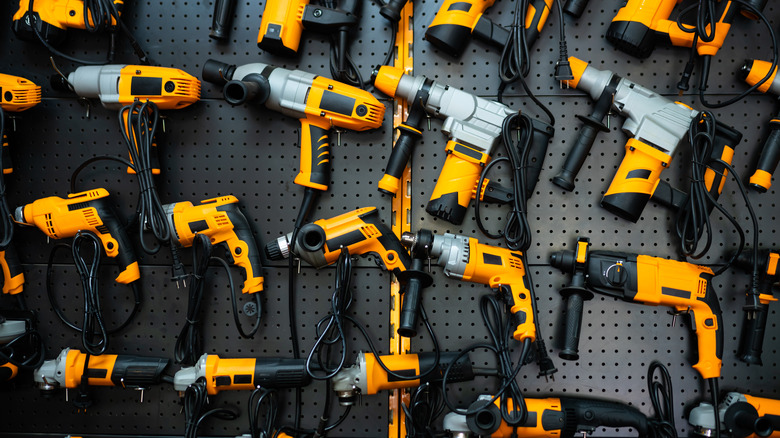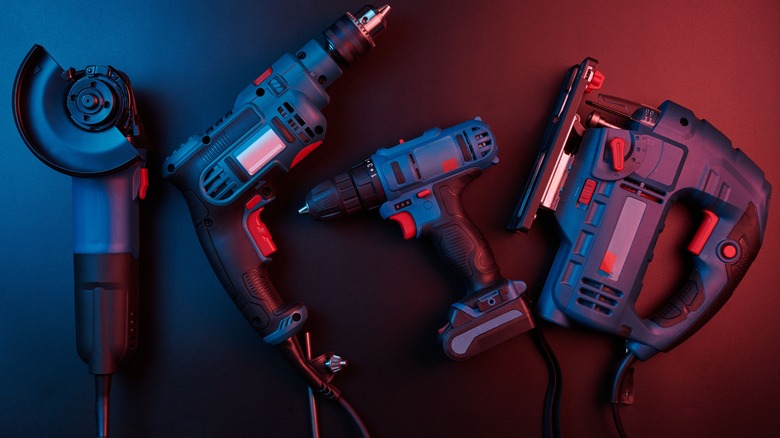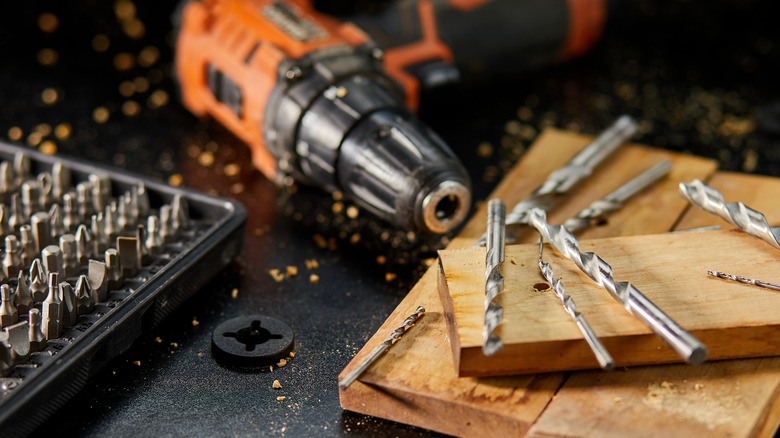Why You Should Always Check Where Your Power Tools Are Made
According to internet urban legends, Nutella tastes different in Europe than in the United States. It's not that the difference is slight and barely noticeable. The theory goes that European Nutella is superior in virtually every way. In fact, some American fans of the world's most famous sweet spread go to great lengths to obtain the "original" and are willing to pay a lot more for it than they ever would for the Nutella at their local store. It's the same with power tools, sort of.
If you regularly work with power tools, you know that the quality and performance can vary widely depending on the brand: some manufacturers consistently deliver, and others fall short. But it has long been speculated that certain brands provide only their highest-quality products in specific markets and that where the product was made can make all the difference in terms of quality. This may not be entirely true, but it's not completely false either.
The myths about power tools made in China
Chinese-made products do not have the best reputation in the Western Hemisphere. In some ways, the "made in China" label has become synonymous with cheap, low-quality goods that break easily and seldom stand the test of time.
The prevailing sentiment in online communities that revolve around power tools and such is as follows: Chinese-made products may be a decent option if you need a quick fix for a few bucks, but they will let you down in the long run. You should stick with German, American, and Japanese brands if you want quality.
In reality, it's a lot more complicated. Like all countries in the world, China produces low, mid, and high-quality products. The device you are reading this on, or at least some components, was most likely made there. And no matter which cordless drill, belt sander, or saw you buy, there's a good chance it has Chinese-made parts or was assembled in China.
Why you should still check where your power tool was made
You should not discount a power tool only because it was made or assembled in a particular country. However, it's not just anecdotal experiences that have earned, for example, Japanese brands like Makita a good reputation. There are also real-world tests like this one from Project Farm.
If you don't have time to watch the entire video, here's the gist of it. Project Farm tested a Makita impact driver made in China and a Makita impact driver made in Japan. In most tests, the Japanese-made product performed better. Judging by the comment section, hundreds of people who work with power tools daily agree that the tools made in Japan are far better than those made in China and elsewhere.
It should be noted, however, that the Japanese-made impact driver was created exclusively for the Japanese market. In other words, it might be that Japan's strict regulations and quality controls are what really made the difference and not the product's origin. So, yes, it's always a good idea to check where a power tool was made before buying it, but that's only part of the equation.


